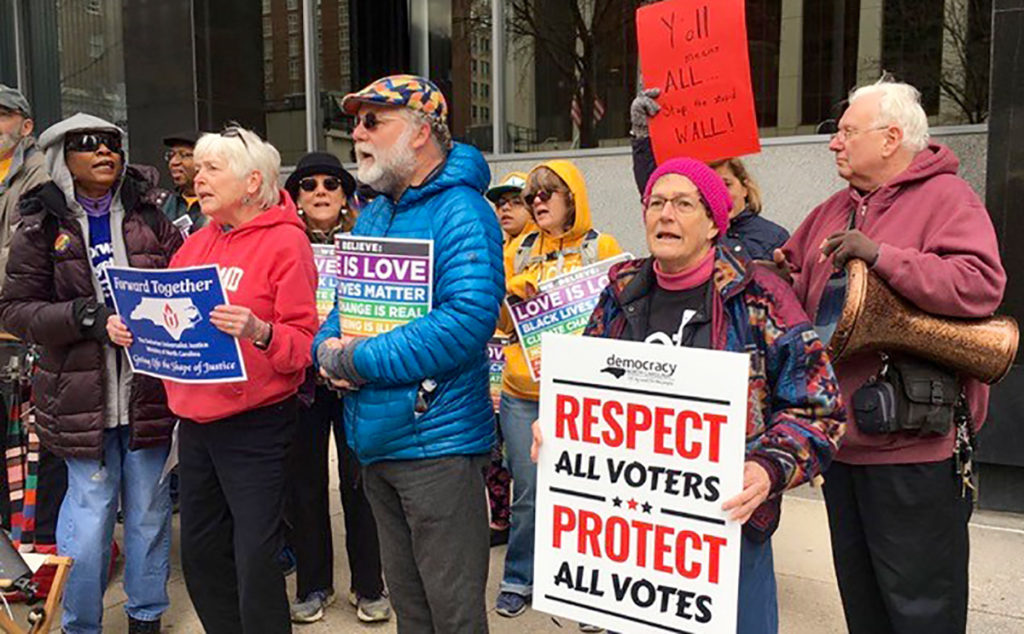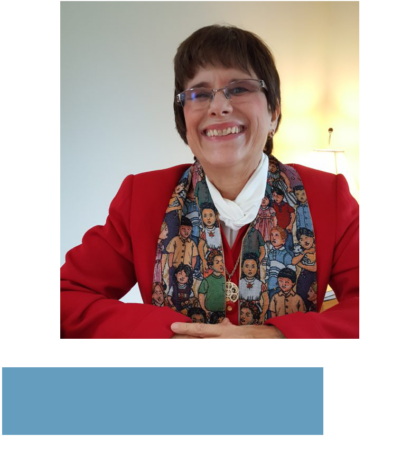 A couple of years ago, I was at a rally in front of the Maryland statehouse in Annapolis calling for stronger police accountability in cases of police brutality and misconduct. A local reporter, seeing my clergy collar, asked why I was there. I’m a former journalist so I began by giving a detailed synopsis of the related bills pending before the Maryland General Assembly.
A couple of years ago, I was at a rally in front of the Maryland statehouse in Annapolis calling for stronger police accountability in cases of police brutality and misconduct. A local reporter, seeing my clergy collar, asked why I was there. I’m a former journalist so I began by giving a detailed synopsis of the related bills pending before the Maryland General Assembly.
Seeing the reporter’s eyes glaze over, I realized she probably knew the basics of the legislation. What I needed to talk about was why I was there as a person of faith who is a Unitarian Universalist minister. So I mentioned our UU Principles that recognize “the worth and dignity of every person,” call for “justice, equity and compassion in human relations,” and strive for “peace, justice, and liberty for all.”
Our Unitarian Universalist faith inspires and grounds our justice work. It reminds us that all people are important and that we are connected to each other, all existence and this planet we call home. We do this work together as a faith community as well as with interfaith and community partners. But we don’t always share that part.
UUA President Rev. Dr. Susan Frederick-Gray recently said the one thing she repeatedly hears about us beyond UU circles is that “we show up.”
Showing up is important – especially now. Sharing how our UU faith and theology grounds our actions is an important part of how we show up. I still tend toward long-winded answers when someone asks why I am called to justice work. So I’m working on a few short concise responses.
Our Seven Principles is a good place to start. They call us to our best selves and provide guidance on how to be with each other and in the world.
For specific issues, I often check our UU Actions of Immediate Witness and Statements of Conscience passed each year at our General Assembly. They often go beyond our Seven Principles and provide deeper UU theological grounding. You can find a chronological list here with links to complete texts.
I also find helpful the “Grounding in UU Values and Principles” section (page 5) in the 2020 UU the Vote Launch Guide. Find the full guide here It speaks specifically to our efforts to expand democracy and ensure “a world where all people are free and flourishing.” It also provides grounding for other justice work.
“As UUs, our deepest beliefs are a life-giving, life-saving, life-sustaining alternative to the narratives and policies of domination, supremacy, exceptionalism, and exploitation that are on the rise,” it reminds us.
The section goes on to briefly illuminate UU values and principles of Interdependence, Democracy, Inherent Worth and Dignity Across Difference, Pluralism, and Diversity, and Self-Determination and Human Agency.
The importance of connecting our justice work to our faith is also highlighted in Justice on Earth: People of Faith Working at the Intersection of Race, Class and the Environment, the 2018-19 UUA Common Read, edited by Rev. Manish-Marzetti and Rev. Jennifer Nordstrom.
“When I have tried to separate my justice work from my faith, I have burned out and caused harm to myself and others,” says Rev. Nordstrom in the introduction. She also mentions the importance of doing this work in community and supported by spiritual practice.
“We also help each return to our deepest and highest resolve when we fall into our own habitual failings, she says. “We return to spiritual practice for resilience, nourishment, and integrity. We encourage each other toward and hold each other accountable to the whole and the vision of Beloved Community for which we work.”
In Love,
Karen Lee Scrivo
Rev. Karen Lee Scrivo is a community minister working on justice issues. She serves as an editor for UUSJ’s E-News and other online communications. Karen is also working with the Goodloe Learning Community to create opportunities for multi-generational justice work for this Maryland homeschooling umbrella group. She is affiliated with Paint Branch Unitarian Universalist Church in Adelphi, MD.


